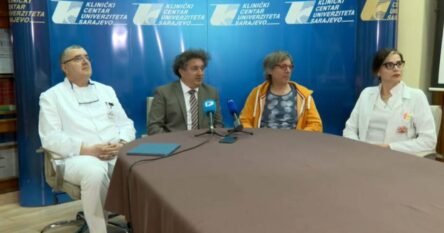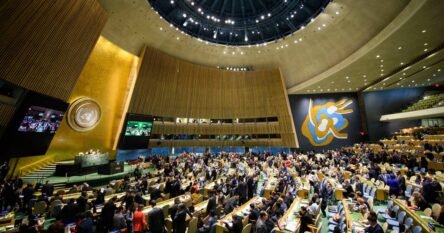Conflict of interest
Through public procurement to the parliamentary bench, through loopholes in the law
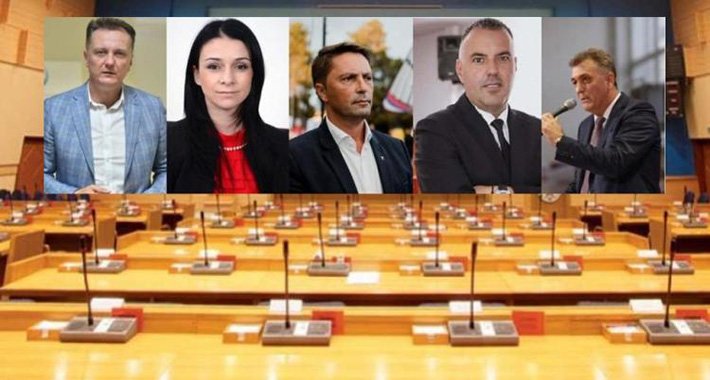
The way in which the Republic Commission for determining conflicts of interest in the authorities of Republika Srpska interprets the law has reached such an absurdity that there are almost no conflicts of interest in this entity
Taking advantage of the shortcomings of the law itself, the commission regularly rejects reports of conflict of interest in cases where, for example, MPs simultaneously perform the functions of acting directors of public companies or institutions. The reasoning sounds grotesque: the entity's law on preventing conflicts of interest does not mention acting officials anywhere, writes Impulsportal.
Written by: Miljan Kovač
At the same time, it is difficult to find a public enterprise, institution or company that is financed from the RS budget, without an acting head at its head. Why the mandates of acting officials last for years in most cases, despite the legal limit, is easy to conclude, when such a situation is brought into connection with the disputed interpretation of the law, which is already full of “holes”.
Thanks to this situation, most of the acting directors, who are also MPs in the current convocation of the Entity Parliament, have decided to run for another parliamentary term.
The register of public office holders published by Transparency International BiH (TI) contains an extensive database of officials who perform several functions at the same time. Among them is the acting director of the IRB RS Dražen Vrhovac, as well as the acting dean of the Faculty of Political Sciences Ranka Perić-Romić. Their names are among the candidates of Milorad Dodik's SNSD for new mandates as members of the RS National Assembly. After a four-year break, Srđan Milović, assistant director of the “Rudnik i termoelektrane Gacko” or “Gacko Mine and Thermal Power Plant” (RiTE), will fight for a new parliamentary mandate, but this time in the BiH Parliament, for whom the conflict of interests has never been an obstacle in the performance of his duties.
We also investigated what kind of conflict of interest the director of “Technical Remont Bratunac”, Slavenko Ristić, known for the acquisition of the famous mobile hospital, as well as Siniša Vidović, the owner of companies that have been procuring and servicing official cars for RS institutions, will find themselves in if they are elected to the parliamentary benches.
VD “remedy” for conflict of interest
Member of the current convocation of the National Assembly of the RS, Dražen Vrhovac, is also a candidate for a new parliamentary mandate on the SNSD list.
On January 3, 2020, by the decision of the RS Government, Vrhovac was appointed acting director of the RS Investment and Development Bank (IRB RS).
According to Article 23 of the Law on the IRB of the RS, “The National Assembly of Republika Srpska adopts audited reports on the operation of the bank and the funds managed by the bank…”
This means in practice that as acting director of the IRB, Vrhovac submits a report to the assembly in which he sits, so to myself.
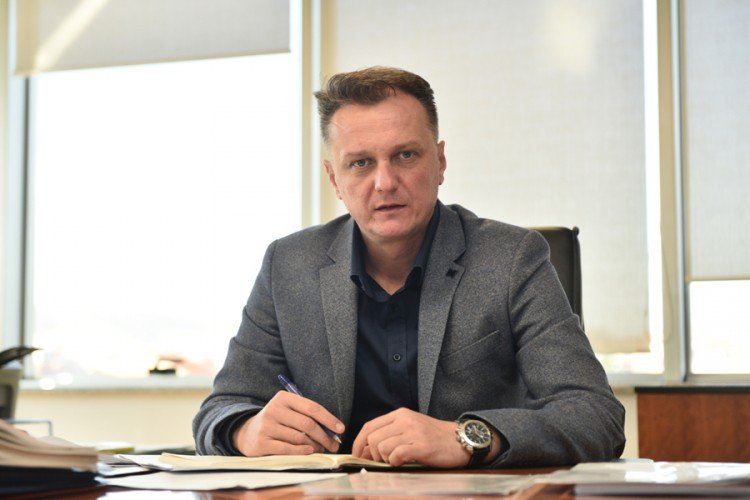
Foto: NezavisneLogically, it would be a conflict of interest, if some other “logic” did not rule in the authorities of this entity.
Thus, the Republican Commission for determining conflicts of interest in the authorities of the RS took the position that in this and similar cases there is no conflict of interest, because the law does not explicitly mention “executives”, but only directors.
The harmfulness of this arbitrary interpretation of the law was also pointed out by Transparency International BiH.
“Essentially, it is a conflict of interest because these persons, of whom there are many, submit a report to themselves, decide on the report themselves, because he is simultaneously the acting director and a member of parliament. Unfortunately, our commission interprets the law so narrowly that this is possible”, says Damjan Ožegović from TI BiH.
The case of Dražen Vrhovac is only one in a series of similar ones in which the commission takes an identical position. When this is brought in connection with the fact that in this entity it is almost impossible to find a public company or institution headed by an acting director, then it is easy to conclude why it is insisted that the rules that do not apply to the acting director for the director. A large number of these “executive officers” are also sitting on the parliamentary benches.
Vrhovac was under scrutiny even before his current parliamentary mandate, as a member of the SNSD in the Prijedor City Assembly, due to a possible conflict of interest. At the same time, he was a member of the Board of Directors of the hospital “Dr Mladen Stojanović” from Prijedor, and he was also employed in the RS Pension and Disability Insurance Fund (RS PIO Fund).
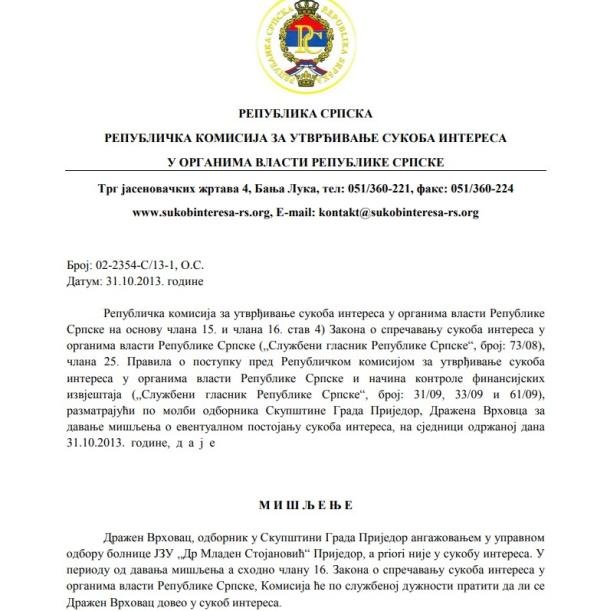
On October 31, 2013, the Republican Commission for the Determination of Conflict of Interest found that Vrhovac “a priori is not in a conflict of interest”. However, the commission also concluded that he, as a member of the council, would have to refrain from commenting on the decision to approve the city budget, given that the public institution, of which he is on the board, is partially financed by the funds of that local community.
The way in which the commission, whose job should be to prevent conflicts of interest, interprets the law, defying logic, is obviously in favour of many people, so they don't even think about giving up at least one function.
This is not surprising because even Vrhovac does not see anything controversial in the fact that he continues to sit both on the parliamentary bench and in the director's chair.
“For me, only what the commission for the suppression of conflicts of interest said is authoritative and nothing else”, he briefly commented in a statement for “Impuls”. According to the “Žurnal” portal, the IRB opened a regional office in Prijedor last year, which was leased from Vrhovac's mother. Obviously, the authorities in this entity do not see a conflict of interest as a problem, at least not when it comes to the leading people of the ruling party.
Both deputy and dean
The case of the Acting Dean of the Faculty of Political Sciences of the University of Banja Luka confirms that everything is possible with this kind of application of the undrafted law.
Ranka Perić Romić was appointed to this position on December 25, 2019, even though she was sitting in the National Assembly of the RS at the same time as now, as a member of the ruling SNSD. At the same time, she is a member of the main board of that party and the president of Active Women of SNSD Gradiška.
The University of Banja Luka and the Faculty of Political Sciences are financed, among other things, by the RS budget, which is adopted by the National Assembly, of which Ranka Perić Romić is a deputy. Therefore, it would be logical to conclude that it is a conflict of interest. However, as we have already said, in this entity the way in which the commission interprets the law on preventing conflicts of interest takes precedence over logic.
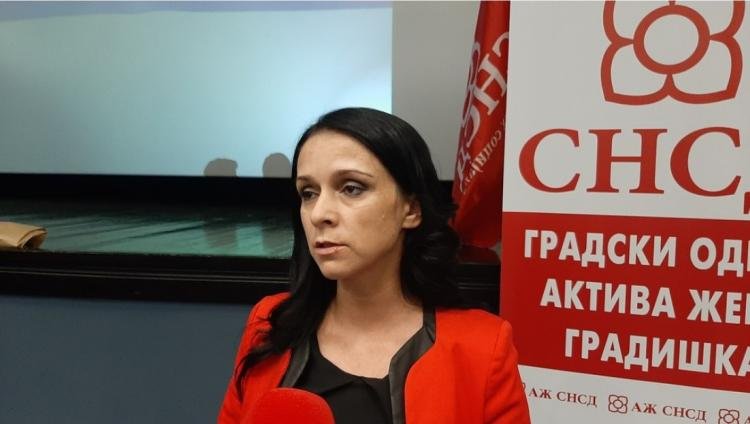
Foto: radiogradiska.com
That is why it is also possible that her husband, Rajko Romić, was appointed to the position of director of the newly established public company “Radio-televisija Gradiška” in November of last year. The founder of this media company is the city of Gradiška. According to data from the TI database, Rajko Romić is also a member of the Board of Directors of “Sveti Sava” Primary School Gradiška.
Ranka Perić Romić, who ran for another parliamentary mandate, was not in the mood to answer the questions of the “Impuls” portal.
From the tent to the parliament
Bijeljina businessman Slavenko Ristić does not fear that he will find himself in a conflict of interests. Even though he is the leader of the newly founded Republican Party of Srpska, he will go to the elections on the SNSD list as a candidate for deputy in the National Assembly of the RS from constituency 6. The name of Slavenko Ristić attracted the attention of the wider public at the beginning of the coronavirus pandemic, when the Government of the RS, through the Institute of Public Health, decided to acquire a mobile covid-hospital through his company “Balkan Global”.

Foto: Istinomjer
The procurement was carried out according to an urgent procedure, so the order arrived in Banjaluk soon. It is actually a large tent, for which 4.29 million KM were paid. At least that's what was announced by the Government of RS when due to the big dust-up that arose in the public, the Institute for Public Health was ordered to terminate the contract with Ristić's company and request a refund.
Ristic's company, however, was not at a loss. As Ristić himself confirmed at the time, the hospital was sold in Turkey for five million euros.
Back in 2012, Ristic's “Balkan Global” became the majority owner of “Technical Remont” from Bratunac, with an 82% stake. After that, Ristić became the general director, and the company began to engage in a lucrative business, mainly in the foreign market, as stated in this company.

Foto: balkanplus.net
However, “Tehnički Remont” also did a lucrative job in 2019, when it produced and delivered eight multi-purpose “despot” all-terrain vehicles for the needs of the Ministry of Internal Affairs of Republika Srpska.
The prototype of this armoured vehicle was presented to the public on January 9, 2019, in Banja Luka, at a parade held on the occasion of the unconstitutional “Day of the Republic of Srpska”.
As was later confirmed to the media, 11.94 million KM were paid for the eight vehicles.
The purchase of the Despot by the MIA of the RS was not made through public procurement, but on the basis of the contract on the production and delivery of this vehicle, which the MUP and Ristić's company signed only on August 2, 2019. So, seven months after the first “despot” was presented to the public.
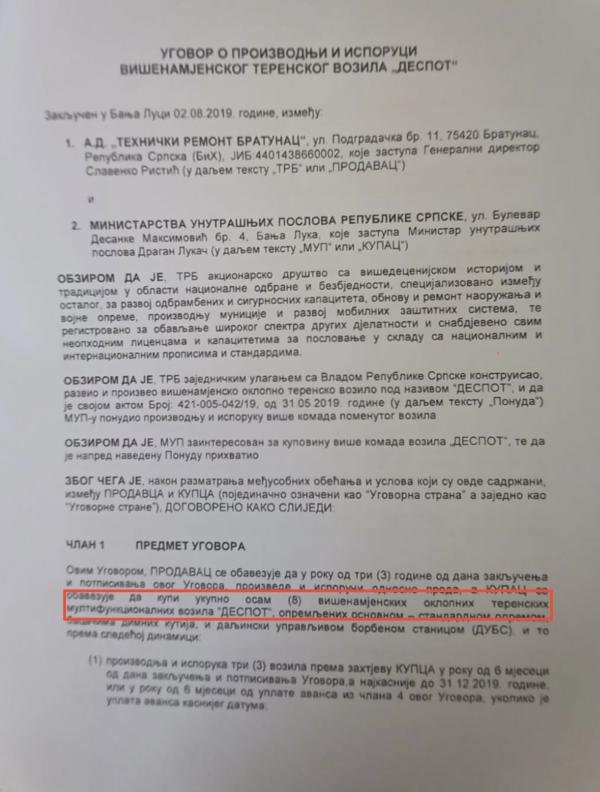
“It is a contract on business and technical cooperation, as a company we had an interest in developing a new product that we submitted to the MIA for testing, and after that testing, we marketed those products to the ministry and were not driven by profit,” claimed Ristić in a statement for “Impulse”.
There is always work for Ristić
However, these are not the only jobs that “Tehnički Remont” and other companies owned by Ristić charged from the budget. Through the company “Balkan Global”, he is also the owner of the company “Elvaco MetPro” from Bijeljina.
This company, as well as “Tehnički Remont”, receives numerous public procurement jobs from institutions, public companies and institutions in Republika Srpska.
It is interesting that both companies obtained most of the jobs based on the public procurement procedure through direct agreements, as can be seen on the public procurement portal of Bosnia and Herzegovina.
Thus, in one day, on May 11 last year, the Republican Administration of Civil Protection signed even two direct agreements with a company from Bratunac, the subject of which is identical: “Procurement of spare parts and repair services for demining machines”. One contract was worth 4,879.16, and the other 3,472.86.
As the Law on Public Procurement of Bosnia and Herzegovina stipulates that the highest value of the procurement of works by direct procurement cannot be higher than five thousand KM, apparently in civil protection they found a way to bypass the limiting legal provision, by dividing the procurement into two parts.
“Tehnički Remont” was also given the repair and servicing of armoured combat vehicles, as well as other vehicles of the MIA of the RS, and did business with “Elektroprivreda RS” and “Vodovod Bijeljina”, among others.
Ristić's other company, in addition to a series of direct agreements on public procurement, also won one job through an open procedure. A contract worth 97,400 KM was concluded with “Rudnik i termoelektrana Gacko” on June 28 last year for the “procurement of metal sleepers for the new transporter I BTO system”.
And if he is elected as a member of the RS Assembly, Ristić claims that he will never be in a conflict of interest and that he will not be at a loss if his companies do not get jobs that are financed with public funds, because, as he claims, their priority is the foreign market.
The state as a resource
“It would be illogical, you will agree with me, if you have 1,000 people employed in the system to rely on the budget and the market, which only has 700 to 800 thousand people in the territory of RS. My conflict of interest cannot exist, because I absolutely see the state, first of all, as capital and a resource, so that we can market our products and everything that we do abroad,” says Ristić.
However, he also notes that in his companies he is not the director but the owner, so in his opinion, he could not be in a conflict of interest.
In truth, Ristić, who was previously the general manager of “Tehnički Remont”, currently holds the position of chairman of the board of directors of that company.
However, Transparency International BiH warns that the law says otherwise.
“Elected representatives (MPs) cannot be members of administrative or supervisory boards, nor directors of companies in which they have invested capital during the four-year period before taking over the public office they are performing, nor that do business with any government body while performing public functions. Republika Srpska or local self-government units, while the elected representatives perform public functions if the value of the contract or work is greater than 30,000 KM”, it is stated, among other things, in the Law on Suppression of Interest in the Institutions of the RS.
Vidović: Only by law
Along with numerous lucrative jobs through his two companies dealing with car sales and service, Siniša Vidović decided to try his luck as a candidate for deputy. Vidović is the deputy president of the United Srpska party, Nenad Stevandić. In addition to “Autokomerc VS” and “Audi centra”, he also owns the hotel “Vidović” in Banja Luka.
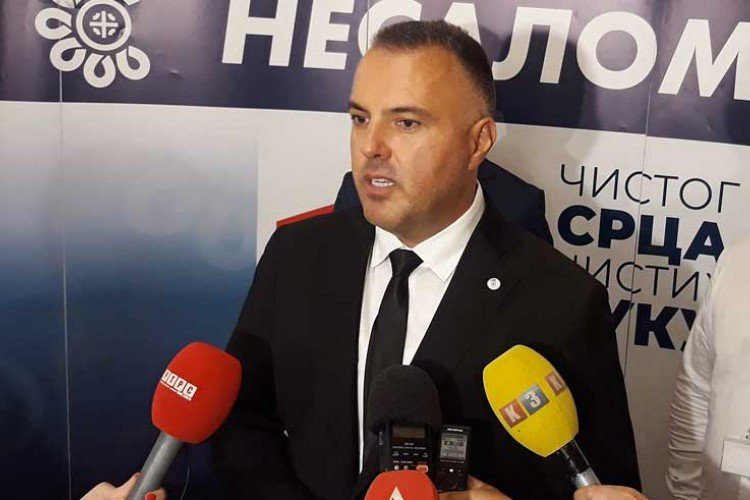
Photo: glassrpske.com
The Insurance Agency of Republika Srpska bought a passenger motor vehicle worth 114,957.26 KM, excluding VAT, from Vidović's “Audi Center” two years ago. After the public procurement procedure, the contract was signed on May 26, 2020.

In August 2019, the Ministry of Internal Affairs of the RS also purchased a passenger vehicle from this company through public procurement, the value of which without VAT is 118,085 KM.
In that year, “Audi Center” was awarded the public procurement of cars for the Public Company Putevi RS, worth 98,273 KM, as well as cars for the Council of the People of the RS and the Entity Ministry for Spatial Planning, Construction and Ecology. Both cars were paid for 85,000 KM. All listed prices are, of course, without VAT.
This is just a part of the work that Vidović's “Audi Center” received through public procurement from institutions, public companies and institutions in this entity, which in the past two years have concluded a number of direct agreements on public procurement with this company.
Vidović's other company “Auto-komerc V.S.” can also boast of good business cooperation with the public sector.
“Auto-komerc” collected over 15,000 KM, excluding VAT, from car rental alone to the Republic Secretariat for Displaced Persons and Migration. Vidović's company received this job through a competitive request, and the public procurement contract was signed on July 13 of this year.
A series of contracts on public procurement, servicing and maintenance of official vehicles were signed on the basis of direct agreements and competitive requirements. In March of this year, the University of Banja Luka also chose “Auto-komerc VS” as the most favourable bidder for the purchase of cars worth 73,504.27 KM, excluding VAT.
Regardless of these lucrative deals, Vidović claims that his business with the public sector in the RS is minimal and that he will not lose any money if he no longer participates in public procurement.
“If I become a deputy, I will work in accordance with the law and I will comply with everything that the law requires, including in the matter of a possible conflict of interest”, commented Vidović briefly in a statement to our portal, noting that he is not a director in his companies, but only an owner.
Milović is on the list again
Srđan Milović from Gack is also on the list of candidates for deputy in the House of Representatives of the BiH Parliamentary Assembly. As a member of the ruling SNSD, Milović sat in the RS National Assembly until the 2018 elections, in which he failed to renew his parliamentary mandate.
In 2015, proceedings were conducted against him due to a conflict of interest. Application against Milović, who at the time was simultaneously a deputy and executive director for coal production and mine development in RiTE Gacko.
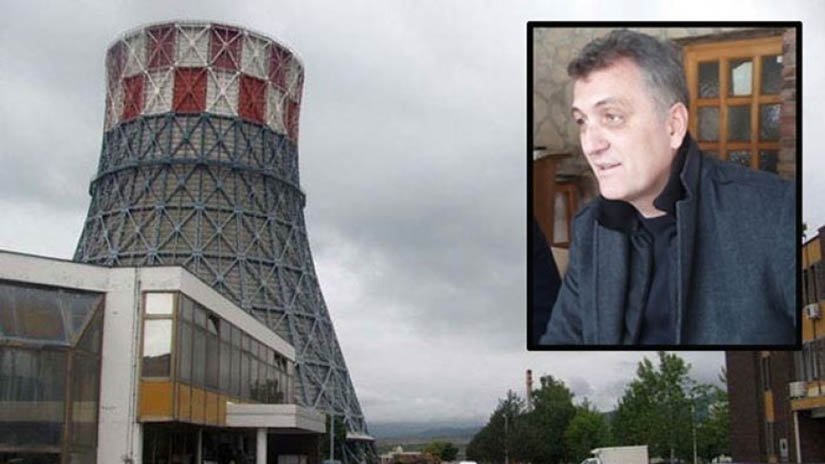
Foto: rtvbn.comHowever, the commission concluded that it was not a conflict of interest, because the law does not specify the function of the executive director, so the application was dismissed.
From March 2011 to October 2014, while Srđan Milović was the executive director of this public company, RiTE Gacko signed 57 public procurement contracts with the company “Termograding”, also from Gacko. According to information from the Center for Investigative Journalism (CIN), the total value of these jobs was 31,463,353 KM.
Before he took a high position in the thermal power plant in Gata, Milović worked as the technical director of “Termograding”, owned by his son-in-law Žarko Dragičević.
Milović currently holds the position of assistant director at RiTE Gacko. He was never responsible for the conflict of interest. This was made possible by the law, with all its shortcomings, but also by the Commission for Conflict of Interest in the Institutions of the RS, which acts as a guide around the loopholes in that law.
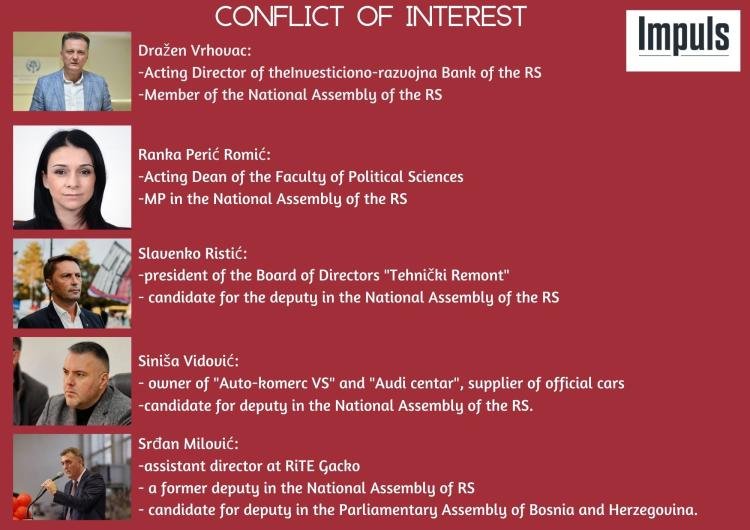
Tanja Topić: Society rests on absurdities
Political analyst Tanja Topić says that everything is possible, including the toleration of conflicts of interest in society, which “rests on absurdities”.
“I think the first step in the application of laws is to pass them in order to find a shortcut and avoid their application. It is an illusion to expect that those on whom the amended law would have a direct impact will participate in its amendment. Blocking is an integral part and identity of ethnonational policies, they exist on the principle of blocking and blackmail. Sometimes we have perfect laws, the problem is that they don't apply to everyone in the same way, and I consider that a bigger obstacle for the functioning of society, simply, the absence of the rule of law”.
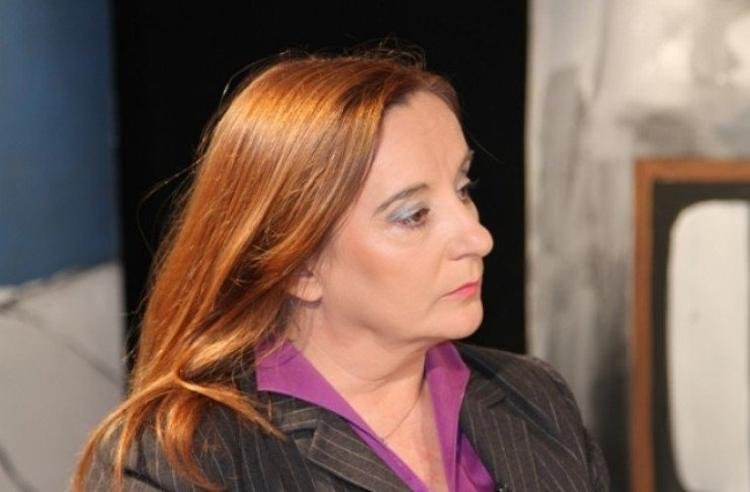
Watch the video survey we did with the citizens of Banjaluka about the conflict of interest in institutions.
Read about this topic on the portals Žurnal, Inforadar, Interview.ba, Hercegovina.info, Fokus.









